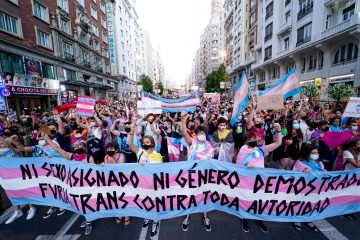By Nnamdi Eseme
In Nigeria many young people do not fully understand the meaning of family planning, options available and how to go about it. This is evidenced in the high rate of unsafe abortions among girls and women, maternal deaths and alarming increase in population. Despite huge efforts made to increase contraceptive usage and educating women of reproductive age about family planning, little has been achieved in ensuring that proper contraception is used.
In most sub-Saharan African countries, less than one third of sexually experienced girls reported using a condom in their most recent sexual experience (Women Deliver). And according to a recent study by the Guttmacher institute, an estimated 1.25 million induced abortions occur in Nigeria in 2012 alone as a result of very low level of contraceptive use.
Following the Family Planning 2020 (FP2020) global partnership that supports the rights of women and girls to decide freely, and for themselves, whether, when, and how many children they want to have, organizations like DKT International has been promoting family planning and in 2014, together with other health partners, became the first programme to commercially introduce the Sayana Press contraceptive in Africa. Sayana Press is a low dose, all-in-one, pre-filled syringe and small needle for simple and fast administration just under the skin that protect against unwanted pregnancy for three months. This is a great achievement as many sexually active young people especially girls in Africa are looking for contraceptives that can be taken less frequently and with maximum effect. This is in addition to a variety of choices from a wide range of quality and innovative contraceptive products that are effective, safe and affordable like condoms, pills and intrauterine contraceptive devices (IUDs)
In western Africa, only 9% of married women use modern methods of family planning, according to a report by the Population Reference Bureau. This figure emphasizes the gross inadequate use of modern methods of contraception. It is therefore necessary for government and health organizations to increase support for family planning. This will reduce the huge strain on the economy, reduce overpopulation, unemployment and improve the health of women, their husbands, children, and the society at large.
Imaobong Etuk is a 22 year old mother of one from Akwa Ibom state, south-south Nigeria. She said she had had two horrible abortions since the birth of her child. She says:
“I had my first child at 17 years old. I was timid and unaware of any form of contraception except the use of male condom. It was after I gave birth that the nurse told me there were several types of contraceptives like IUDs, oral contraceptives, emergency contraceptives, injectables and implants. The truth is; I am scared of taking contraceptives especially the oral because I hear it makes one fat, has several side effects coupled with the fact that I have to take it every time I have sex. But recently, a friend of mine told me I could use the Sayana press injectable which lasts for three months. I plan on using it.”
To ensure that the FP2020 is met, the Federal Ministry of Health (FMOH) at the third Nigeria Family Planning Conference in November 2014, unveiled the Nigeria Family Planning Blueprint (Scale-Up Plan), which is to run for four years; 2014-2018. The plan articulates Nigeria’s ambitious FP2020 commitment, including the goal of raising the contraceptive prevalence rate (CPR) among married and unmarried women of reproductive age from 15% to 36% by the year 2018, and is estimated to cost US$603 million.
This task looks set to fail as current dwindling economy could affect the country’s annual health budget leading to fewer funds made available to promote family planning. And the reduction in foreign aids from international partners is also having a toll on the Scale-Up Plan. Thus, there is a need for an immediate response by nongovernmental organizations and private healthcare providers to make quality contraceptives easily accessible to all, especially young women, to improve their reproductive health outcomes.



0 Comments